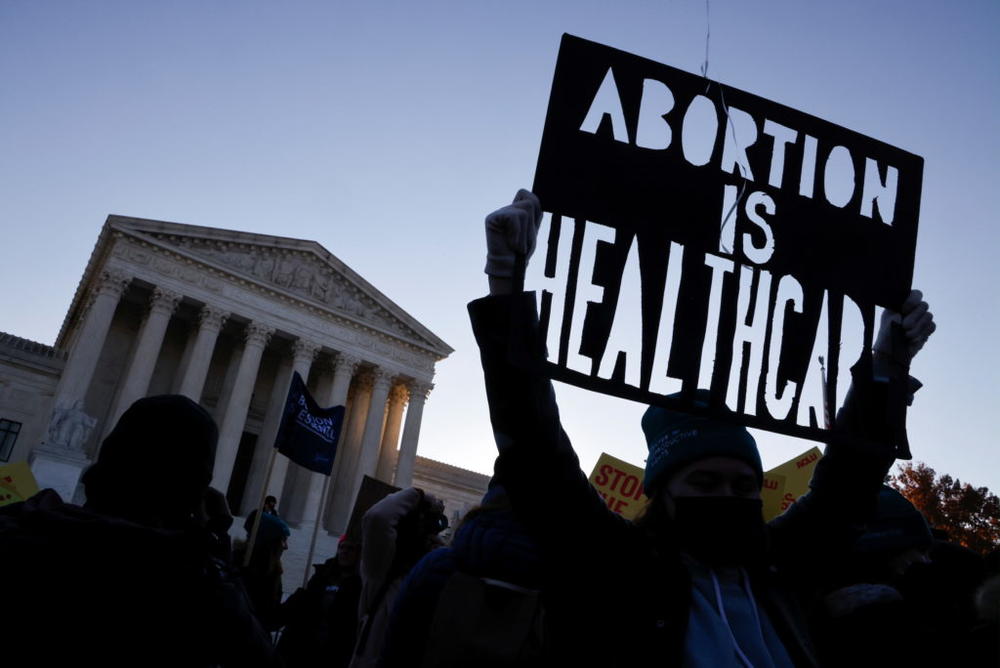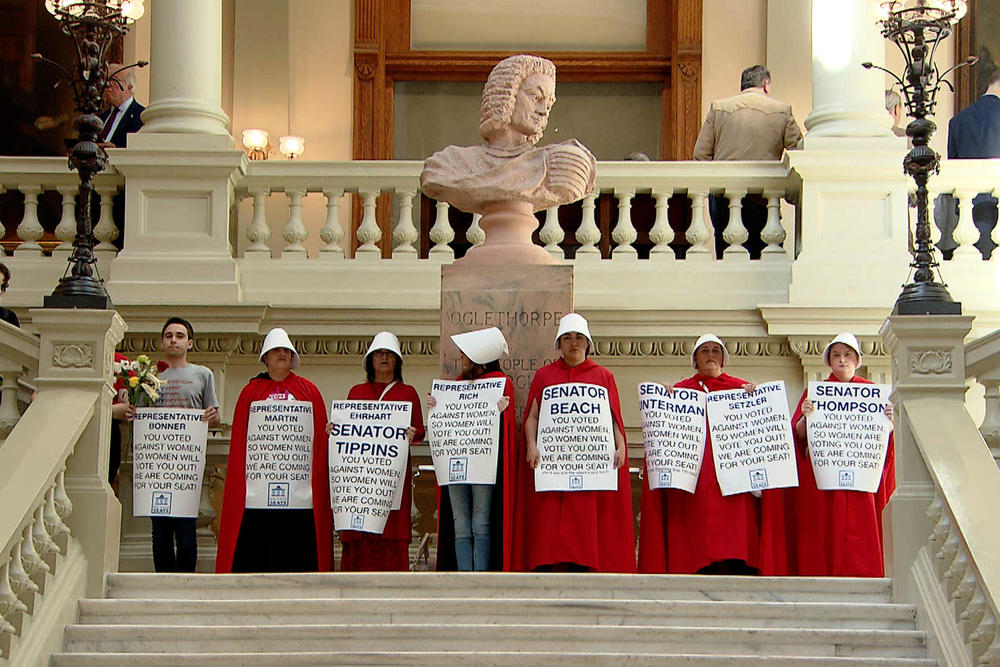
Caption
The U.S. Supreme Court may decide to overturn the landmark Roe v. Wade decision that allows a woman to choose abortion.
|Updated: May 5, 2022 4:06 PM
A Georgia group focusing on the needs of working women says if the U.S. Supreme Court overturns Roe v. Wade, women’s health and economic security will suffer. GPB’s Ellen Eldridge has more.

The U.S. Supreme Court may decide to overturn the landmark Roe v. Wade decision that allows a woman to choose abortion.
Leng Leng Chancey’s family made the difficult decision to stop all cancer treatment that would prolong her father-in-law's life in his final days in hospice care.
“No laws on the books that said that, you know, families can't decide to do that,” Chancey said.
Why then, Chancey wondered, would laws be enacted to restrict basic human rights?
After a U.S. Supreme Court draft majority opinion leaked to the press Monday, protests erupted in Atlanta and across the country. The document, published by POLITICO, was written by Justice Samuel Alito in February and says that the highest court in the country has voted to strike down the 1973 decision made in Roe v. Wade.
In her role as executive director of 9to5 Georgia, an organization working for economic security for women, Chancey said it is a fundamental right to decide when and whether to have children.
Losing access to abortion would endanger women’s health and economic security, she said.
“It's just going to make the lives of so many people more difficult, especially trans folks, women of color, and low-wage working women in our communities,” Chancey said.
Poor or lower-income women constitute 75% of the abortion patient population, according to the Guttmacher Institute. More than half are women of color.
A lack of affordable child care and paid time off is already hurting women in Georgia, Chancey added, and the coronavirus pandemic forced many women who are caregivers out of the workforce.
MORE: 1 in 5 Georgians quit jobs to be caregivers during the COVID-19 pandemic. Here's why
President Joe Biden originally proposed 12 weeks of paid leave in his Build Back Better plan, but the bill passed with only four weeks of paid leave.
Georgia does not have a paid leave law, and roughly 270,000 Georgians currently make too much income to qualify for Medicaid and too little to afford insurance on HealthCare.gov, according to Caitlin Highland with the Georgia Budget and Policy Institute.
Abortion access is already limited in Georgia and across the South. A bill passed by the legislature in 2019 that outlaws abortion around six weeks into pregnancy — or when a heartbeat can be detected — continues to work its way through the courts.

Protestors hold an April 2019 demonstration in the state Capitol against Georgia's "heartbeat bill," HB 481, in costumes reminiscent of those in the TV series "The Handmaid's Tale," which is set in a future without abortion rights. On Monday, May 2, 2022, a draft of a Supreme Court decision that would overturn Roe v. Wade's protections of abortion rights was leaked.
If Roe is overturned, many Georgia politicians say they will push for a total ban.
“Whether is the ‘heartbeat bill’ or whether it's another anti-abortion bill, it's only going to hurt women in Georgia, period,” Chancey said.
“Abortion is health care, and health care is a human right,” said Robert Weissman, president of Public Citizen, a nonprofit consumer advocacy organization.
Abortion bans would criminalize the seeking and provision of health care, threatening to put people in jail for seeking or providing abortions, he said in his statement.
Additionally, Weissman said bans will force pregnant people to seek abortions in unsafe conditions, in which some will be severely injured or killed.
Abortion bans will force others to proceed with unwanted pregnancies, with dramatic, life-altering impacts, he said.
“It’s now time to protect abortion rights in federal law,” Weissman said. “Winning such a law will almost certainly require setting aside the filibuster, but there’s no excuse for arcane and anti-democratic Senate rules to stand in the way of protecting fundamental human rights.”
